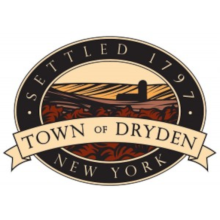NY State’s Dryden Fiber Celebrates 400th Local Subscriber
The Town of Dryden just signed up their 400th customer and continue to make steady progress expanding the popular network into rural enclaves in and around Dryden long deemed “unprofitable” by regional telecom monopolies. The first year and a half of operations focused on building the core fiber ring around the city. They’ve since shifted to the time-consuming task of extending last mile fiber access out to rural unserved and underserved homes in Dryden and nearby Caroline.




















